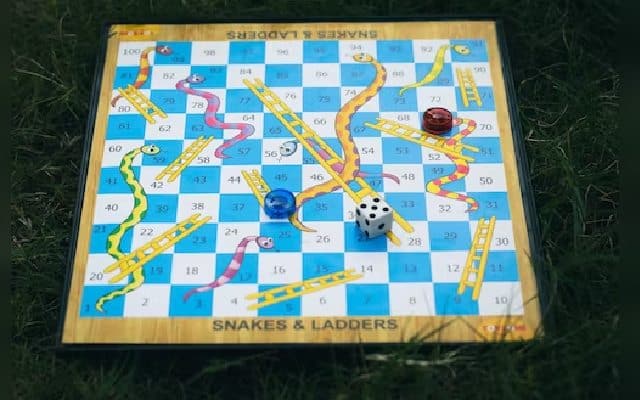As youngsters, we all enjoyed playing Snakes & Ladders. One of our favourite board games, we played it for countless hours with friends and family, tossing the dice to see who would cross the finish line first.
To be completely honest, it is not surprising that the game was invented in India. But I discovered now that the first version of the game was not at all like the one we play today!
The game was first known as Mokshapat or Moksha Patamu in ancient India. Some historians contend that the game dates back to the second century BC, while others believe Swami Gyandev originated it in the thirteenth century AD.
It appears that the game was created to provide a moral lesson to kids about karma and kama (destiny and desire).
The snakes stand for all the evil we do, while the ladders reflect our positive deeds. When we do good, we go closer to the number 100, which represents salvation or moksha and when we do evil, we are reborn as a lesser life form.
To illustrate that the road to kindness is harder to travel than a life of evil, the original game included more snakes than ladders.
The squares of virtue in the original game were as follows: asceticism (78), knowledge (76), faith (12), dependability (51), generosity (57), and reliability (76).
The squares of evil were disobedience (41), vainglory (44), vulgarity (49), theft (52), lying (58), intoxication (62), debt (69), murder (73), fury (84), greed (92), pride (95), and desire (99).
Sometime towards the close of the 19th century, the colonial authorities helped the game make its way to England. Milton Bradley, a pioneer in the gaming industry, released the game Chutes and Ladders in the United States in 1943.
The number of snakes and ladders in the current edition of the game is the same, but all of the symbolism has been eliminated, indicating that the firings were more lenient. Now there is no moral lesson involved; it is just another game where you win or lose by rolling the dice.

















